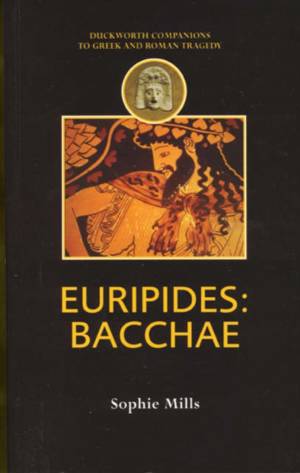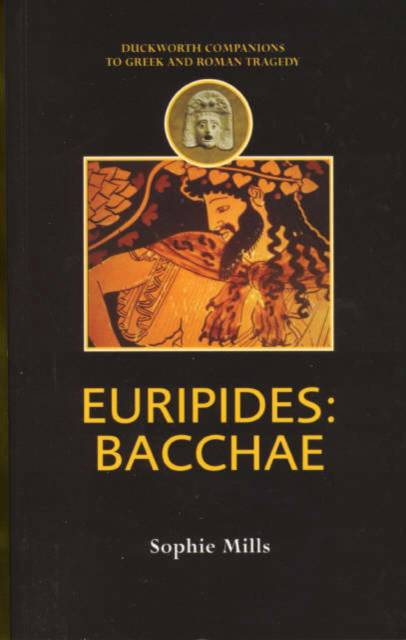
Je cadeautjes zeker op tijd in huis hebben voor de feestdagen? Kom langs in onze winkels en vind het perfecte geschenk!
- Afhalen na 1 uur in een winkel met voorraad
- Gratis thuislevering in België vanaf € 30
- Ruim aanbod met 7 miljoen producten
Je cadeautjes zeker op tijd in huis hebben voor de feestdagen? Kom langs in onze winkels en vind het perfecte geschenk!
- Afhalen na 1 uur in een winkel met voorraad
- Gratis thuislevering in België vanaf € 30
- Ruim aanbod met 7 miljoen producten
Zoeken
€ 52,45
+ 104 punten
Uitvoering
Omschrijving
This is an accessible introduction to the ancient tragedy of discuss the main themes of Euripides' Bacchae, and the central developments in modern criticism, whilst also addressing the play's historical context and the history of its performance and adaptation.
References to Dionysus in popular culture focus on the god as the incarnation of wild and decadent behaviour, by which humans are intrigued and appalled. The god as he is portrayed in Euripides' Bacchae is, however, more complex, paradoxically transcending straightforward notions of the Dionysiac. Euripides' Dionysus blurs the dividing line between many of the fundamental categories of ancient Greek life - male and female, Greek and barbarian, divine and human. This book explores his place in Athenian religion, what Euripides makes of him in the play, and the views of later writers and scholars.
References to Dionysus in popular culture focus on the god as the incarnation of wild and decadent behaviour, by which humans are intrigued and appalled. The god as he is portrayed in Euripides' Bacchae is, however, more complex, paradoxically transcending straightforward notions of the Dionysiac. Euripides' Dionysus blurs the dividing line between many of the fundamental categories of ancient Greek life - male and female, Greek and barbarian, divine and human. This book explores his place in Athenian religion, what Euripides makes of him in the play, and the views of later writers and scholars.
Specificaties
Betrokkenen
- Auteur(s):
- Uitgeverij:
Inhoud
- Aantal bladzijden:
- 144
- Taal:
- Engels
- Reeks:
Eigenschappen
- Productcode (EAN):
- 9780715634301
- Verschijningsdatum:
- 24/02/2006
- Uitvoering:
- Paperback
- Formaat:
- Trade paperback (VS)
- Afmetingen:
- 162 mm x 214 mm
- Gewicht:
- 231 g

Alleen bij Standaard Boekhandel
+ 104 punten op je klantenkaart van Standaard Boekhandel
Beoordelingen
We publiceren alleen reviews die voldoen aan de voorwaarden voor reviews. Bekijk onze voorwaarden voor reviews.









